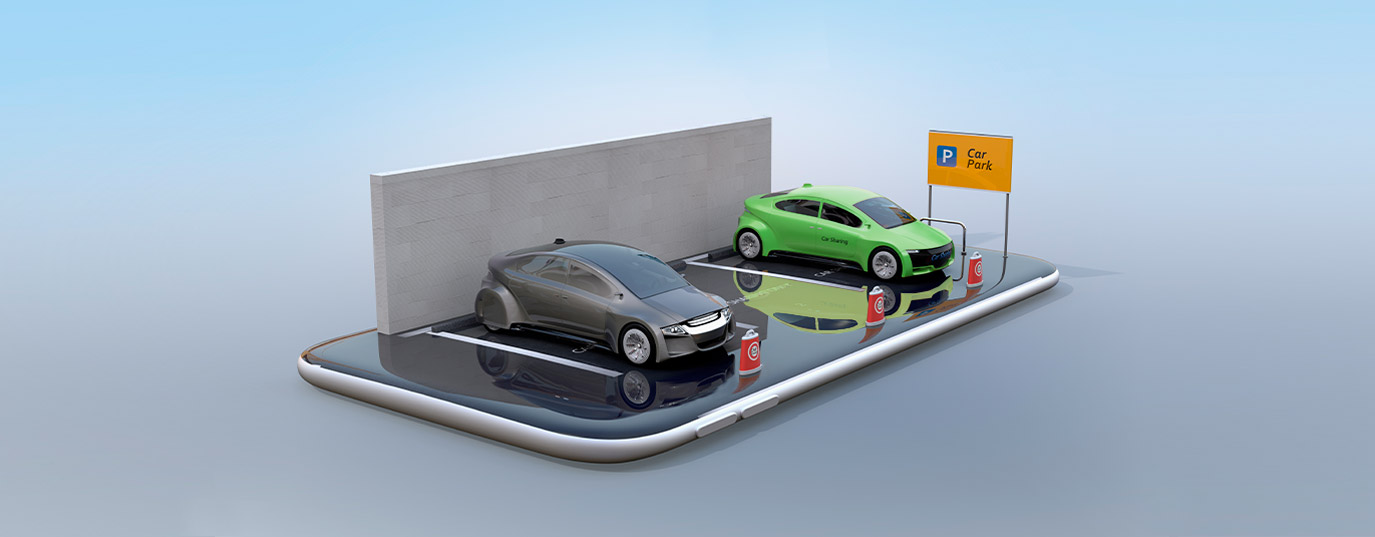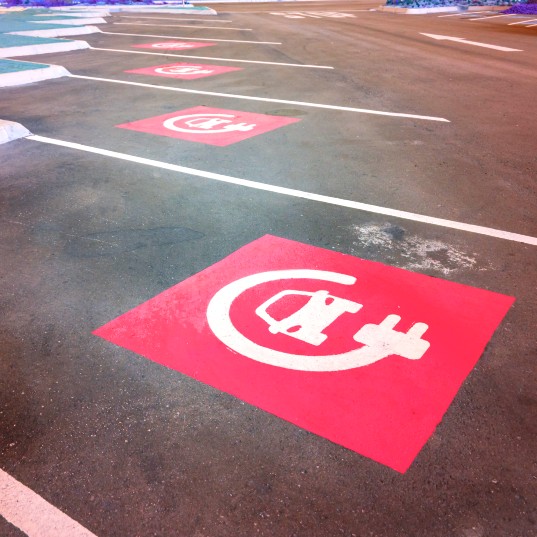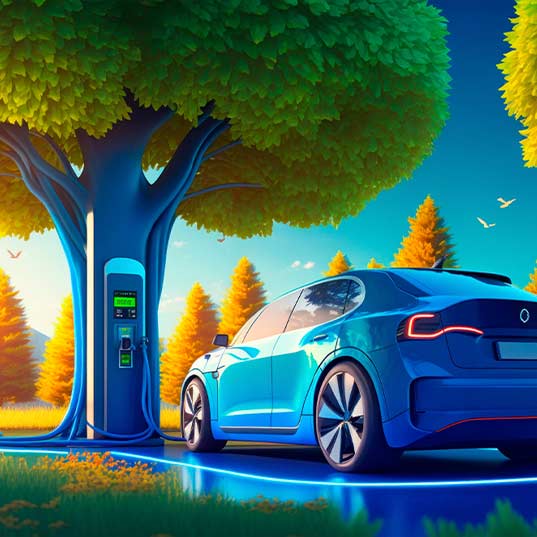Everything you need to know about recharging your electric car
If you’re thinking about switching to sustainable mobility but still have doubts about how to recharge your electric car, we have the answers you’re looking for.
The future of mobility has little to do with teleportation or travelling at the speed of sound. At least for now. Today's times call for innovations that move us towards sustainable, electric, shared and low-emission transport.
A system that encourages more and more people to join electric mobility by teaching us where and how to recharge an electric car, what an electric station is and why this is beneficial for the planet.
What will I read about in this article?
- How and where to charge an electric car
- How long does it take to charge?
- How much does it cost to charge an electric car?
How and where do you charge an electric car?
 Until recently, the range of electric vehicles had been one of the biggest obstacles to the democratisation of their use. However, both the improvement in battery efficiency and the expansion of the network of chargers - both public and private - means that electric mobility is finally becoming a real mobility option.
Until recently, the range of electric vehicles had been one of the biggest obstacles to the democratisation of their use. However, both the improvement in battery efficiency and the expansion of the network of chargers - both public and private - means that electric mobility is finally becoming a real mobility option.
Charging an electric car is much easier today than it was just five years ago. In Norway, for example, 65% of cars sold are already electric. And, according to data published at the end of 2021 by the European Automobile Manufacturers Association (ACEA), the infrastructure of charging points is expanding in European countries. The list is topped by the Netherlands, which already has an average of 47.5 points per 100 km, followed by Luxembourg (34.5) and Germany (19.4).
"The Netherlands already has an average of 47.5 charging points per 100 km".
Where can we find these electric car charging points? Apart from having one in our own garage, there are different possibilities.
🏠 Charging the electric car at home
It is the ideal option for cars that spend the night in their own garage, where they can charge quietly during the night and be ready to drive when the day begins. Installation is simple. It can be attached to the electrical installation of your home or independently.
It’s necessary to take into account the particularities specified by national regulations. Each country has different laws with different requirements for installing this type of system. For example, Spain requires that the domestic recharging point must have an exclusive circuit from the meter to said point.
🦺 Charging the electric car at work
An increasing number of companies have charging points in the communal garages of their offices, both for their employees and for their customers or suppliers. This allows the battery to be ready at the end of the working day for the way back home.
🏬 Recharge the electric car in businesses
The same is true for shopping centres, hotels, supermarkets, or other types of premises. It’s no longer unusual to see electric mobility facilities. However, this type of charging is usually slow and not designed to fully recharge the battery. However, it will become increasingly common to find fast chargers in shopping centres as well.
⛽ Recharge your electric car at an electric car station
If you can refuel at a petrol station, you can already imagine what you can do at an electro-station. These establishments sell and supply electric power to electric and hybrid vehicles. Most petrol stations have fast-charging sockets, so you can have your car ready in less than half an hour.
📍 Charging the electric car at public charging points
They’re located in streets, public car parks and other publicly accessible spaces belonging to a municipality. China is one of the countries that is rapidly expanding its network and is already the country with the largest number. By September 2021, China will have more than one millon public charging stations.
How long does it take to charge an electric car?
- Standard slow charging (3.7kW of 16A power at single-phase 230V): this is usually the norm in private homes or garages, where we can allow the car to spend 10 to 12 hours recharging.
- Standard charging (7.4kW power. 32A and single-phase 230V): this can be done at home or at public charging points and allows you to fully recharge your electric car in approximately 6 to 8 hours. This charging is carried out in the same way and under the same conditions as the standard slow charging, but doubling the charging amperage and therefore doubling the electrical power used (7.4kW instead of 3.7kW).
- Semi-fast charging (on public roads and at 22kW power stations): the great advantage of this type of charging is that it takes about 2 hours to fully charge the car, greatly reducing waiting time. Semi-fast charging can be done in alternating current or direct current.
- Fast charging (on public roads and at electric charging stations at 50kW of power or more): it usually takes about 25-30 minutes to recharge up to 80% of the battery. A sufficient amount because when we’re driving and we stop to recharge, the battery is usually not completely empty.
- Ultra-fast charging (power of 150 kW and current of 375 A or more): the main benefit of ultra-fast charging is reflected in the optimisation of the charging time (in just 10 minutes) and the range of use of electric cars, which in some models reaches up to 400 km. It should be noted that only some electric car models charge above 100 kWh.
How much does it cost to charge an electric car?
It is impossible to answer this question with an exact figure. There are several factors that influence the final price we will pay to charge the battery of an electric vehicle. We’re talking, for instance, about the power of the car's battery, the tariff we have contracted at home, the price at service stations or premises that have these facilities, the taxes paid in each country for electricity or the subsidies that governments offer to encourage the use of this type of vehicle.
Fortunately, more and more facilities - both in terms of infrastructure and prices - are bringing us closer to a reality where electric mobility is the protagonist of the world's roads.
Sources:








